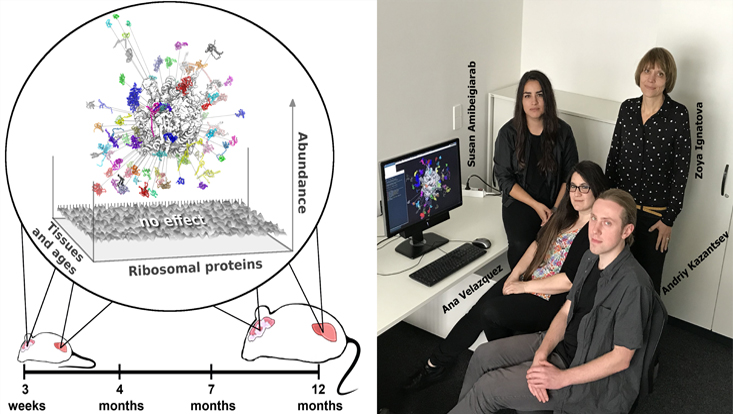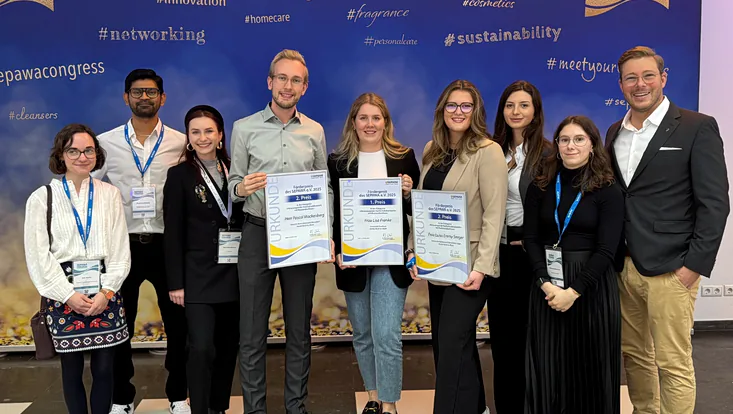Do the biosynthetic machines change as we age?
22. Oktober 2019, von Zoya Ignatova

Foto: UHH/FB Chemie/Ignatova
Ribosomes – central biosynthetic machineries in the cell – that convert the genetic information into function remain invariable with aging. A long-standing question is: do ribosomes vary among tissues and as we age? To address this, biochemists from the group of Prof. Dr. Zoya Ignatova (Dept. Chemistry, UHH) teamed up with the group of Prof. Dr. Hartmut Schlüter and Dr. Lars Fester (UKE) and systematically dissected the protein composition of the ribosomes of brain and liver tissue of mice from early juvenile age (3 weeks) to late-adulthood (12 weeks). Brain is the tissue of pathological appearance of several neurodegenerative age-related diseases (e.g. Alzheimer’s disease). Their comprehensive analysis shows no tissue or age variations in ribosome protein composition. In a broader context, the high robustness in the overall architecture of the ribosomes suggest high stability of the genetic information with age.
The work Invariable stoichiometry of ribosomal proteins in mouse brain tissues with aging is published in the current issue of Proceedings of National Academy of Science (PNAS) https://www.pnas.org/content/early/2019/10/16/1912060116


